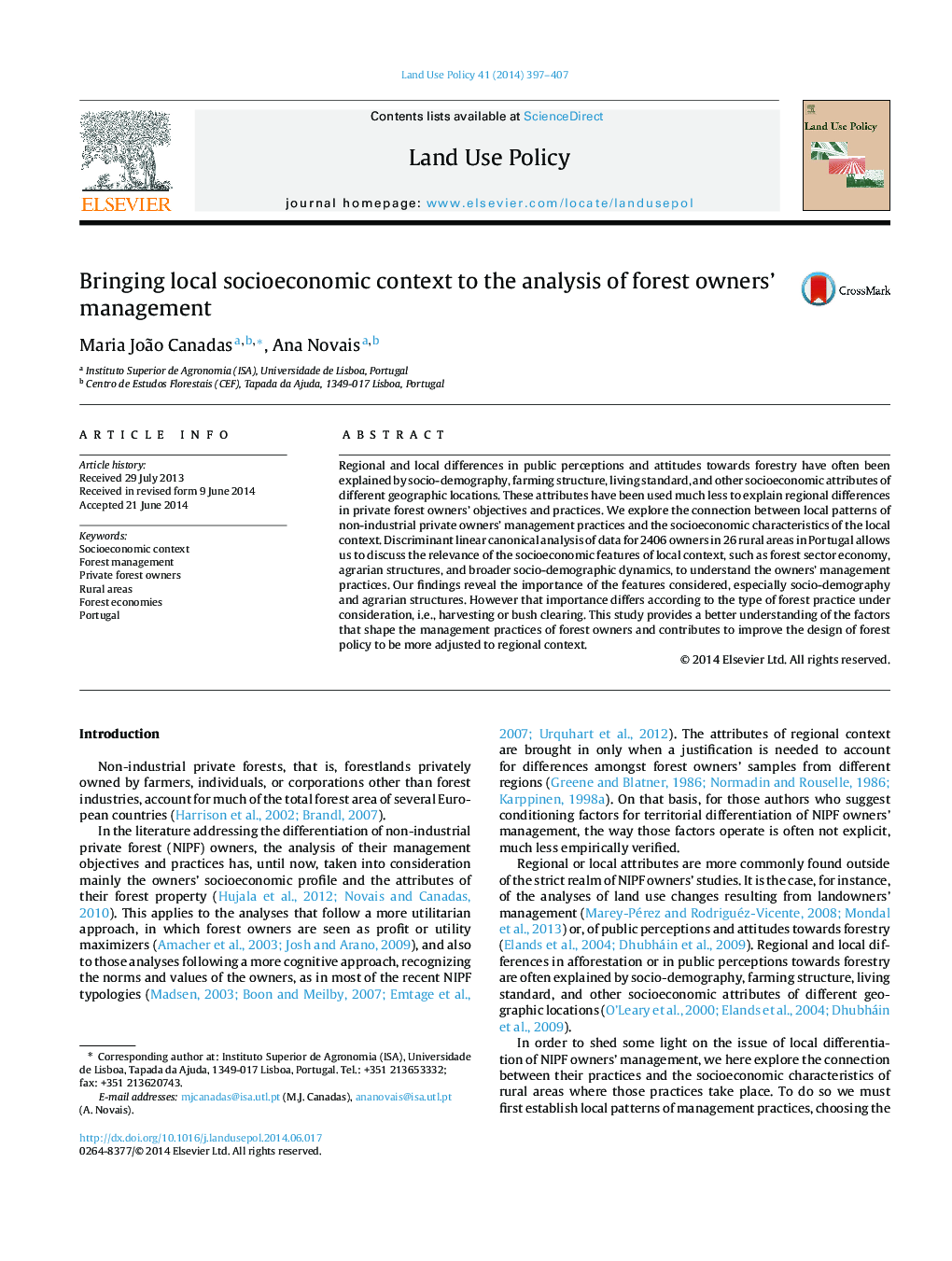| Article ID | Journal | Published Year | Pages | File Type |
|---|---|---|---|---|
| 6548553 | Land Use Policy | 2014 | 11 Pages |
Abstract
Regional and local differences in public perceptions and attitudes towards forestry have often been explained by socio-demography, farming structure, living standard, and other socioeconomic attributes of different geographic locations. These attributes have been used much less to explain regional differences in private forest owners' objectives and practices. We explore the connection between local patterns of non-industrial private owners' management practices and the socioeconomic characteristics of the local context. Discriminant linear canonical analysis of data for 2406 owners in 26 rural areas in Portugal allows us to discuss the relevance of the socioeconomic features of local context, such as forest sector economy, agrarian structures, and broader socio-demographic dynamics, to understand the owners' management practices. Our findings reveal the importance of the features considered, especially socio-demography and agrarian structures. However that importance differs according to the type of forest practice under consideration, i.e., harvesting or bush clearing. This study provides a better understanding of the factors that shape the management practices of forest owners and contributes to improve the design of forest policy to be more adjusted to regional context.
Related Topics
Life Sciences
Agricultural and Biological Sciences
Forestry
Authors
Maria João Canadas, Ana Novais,
